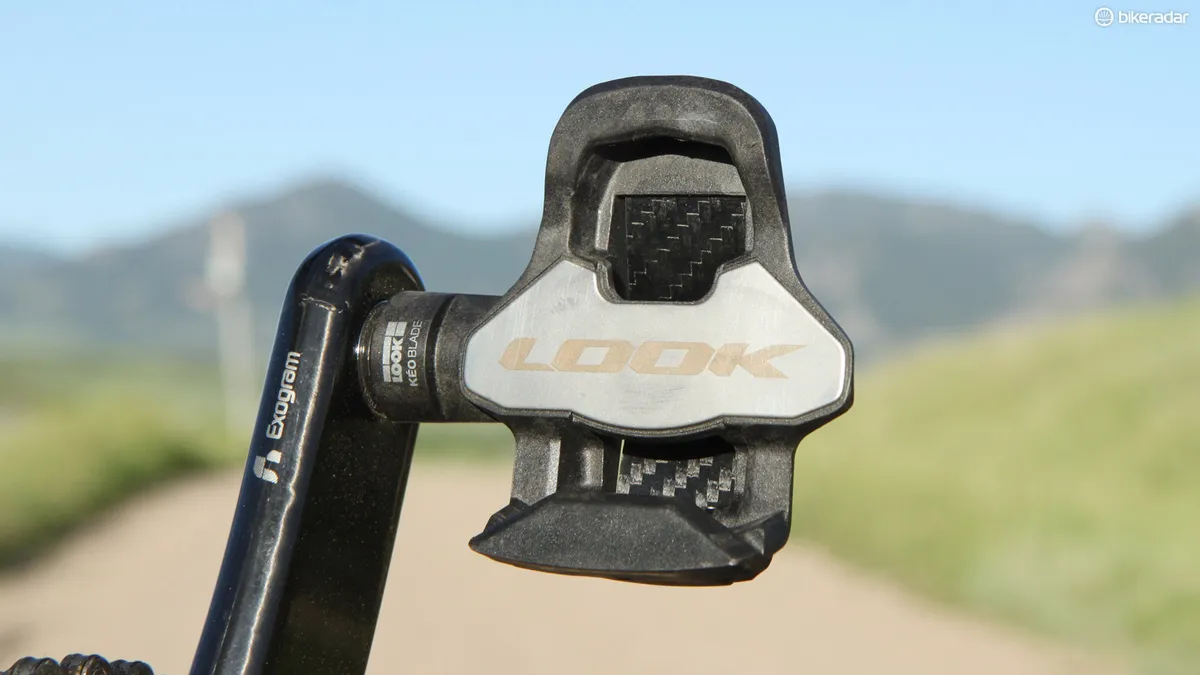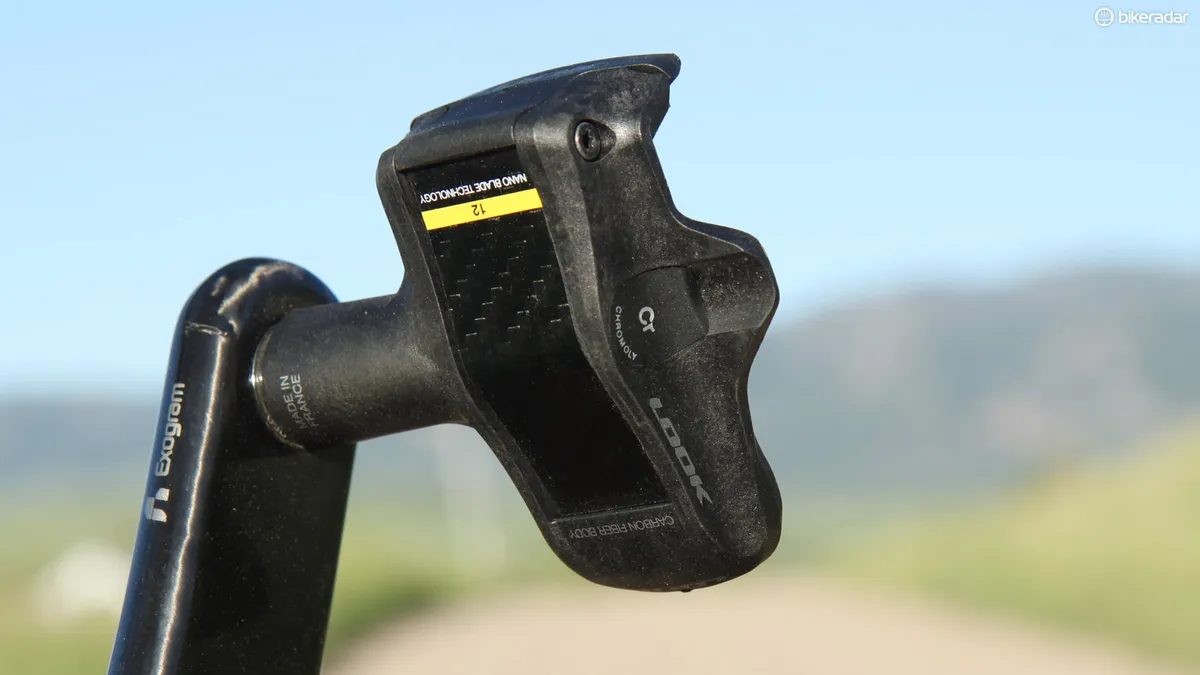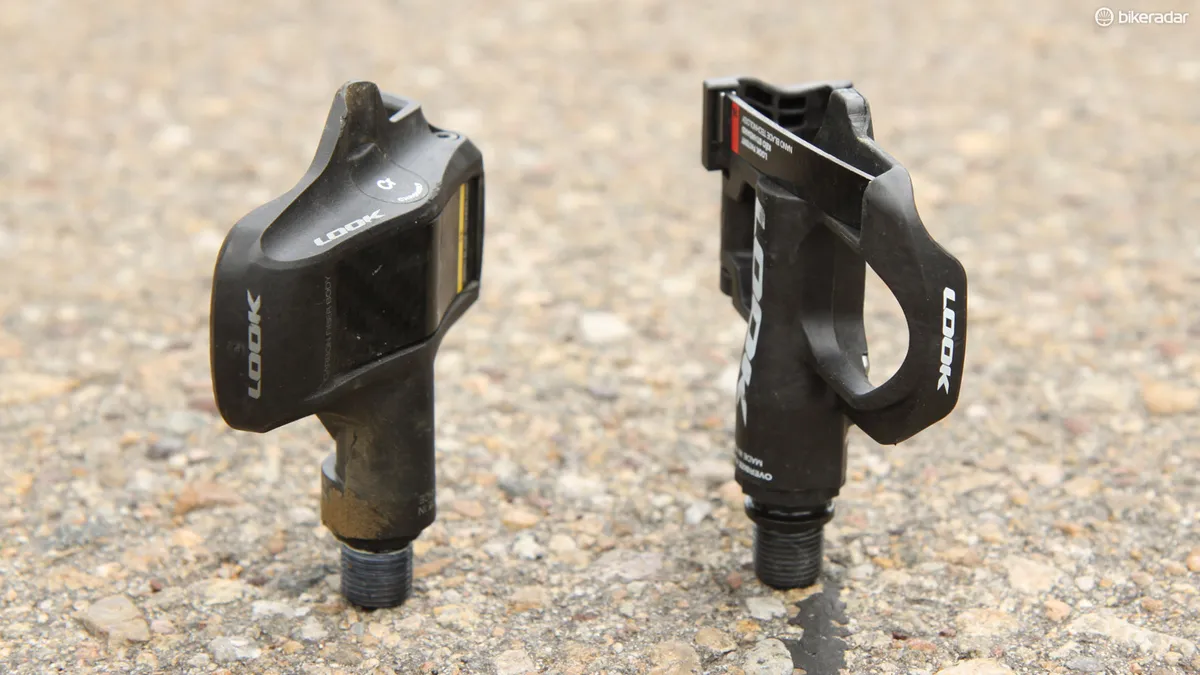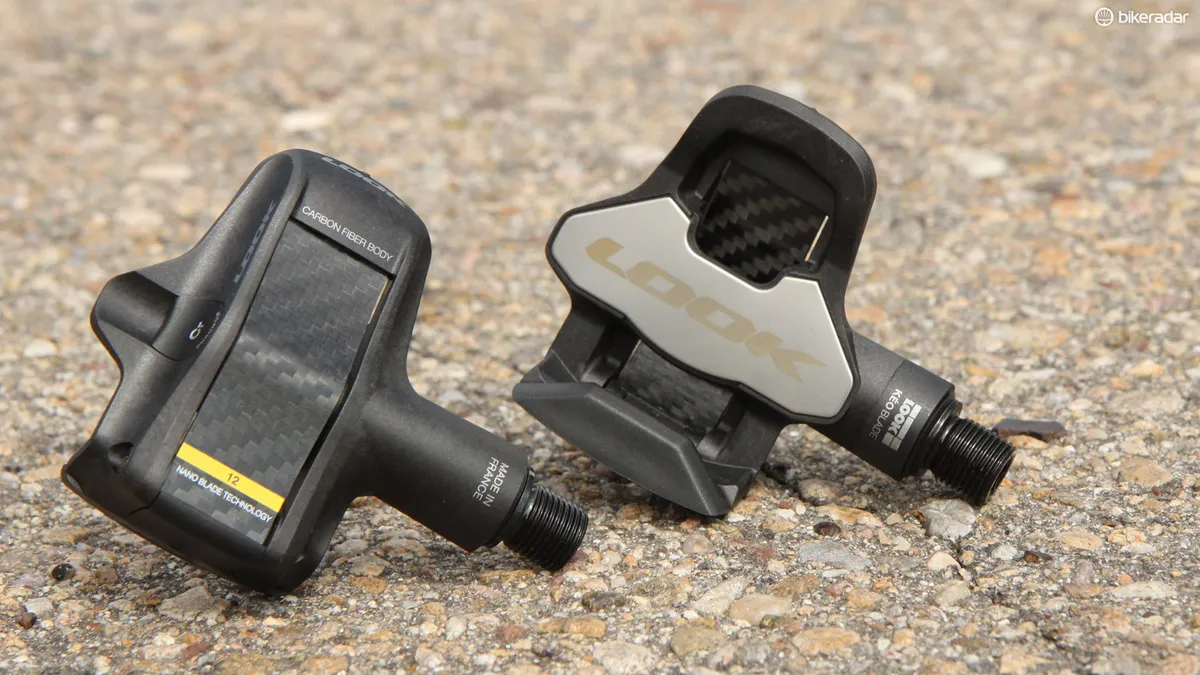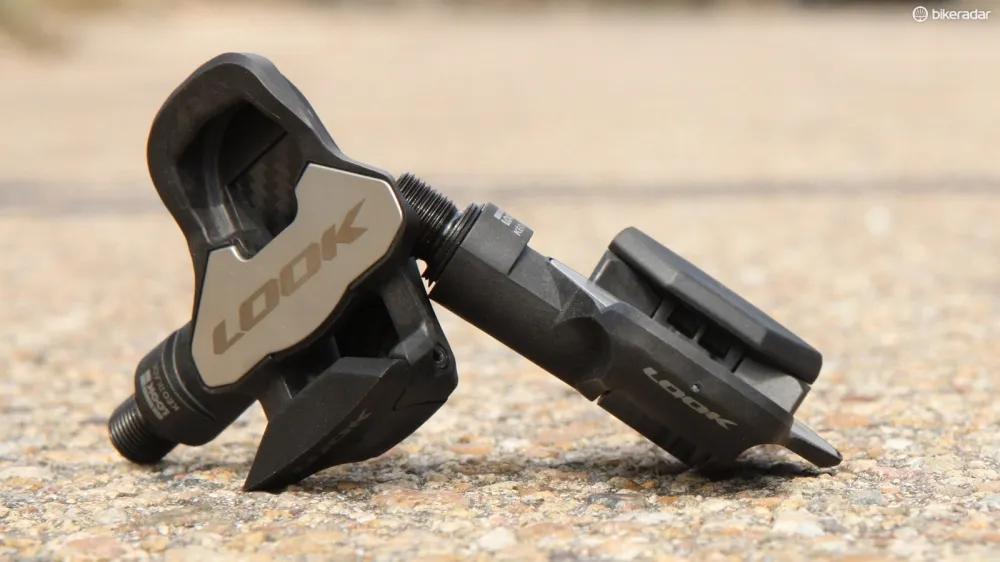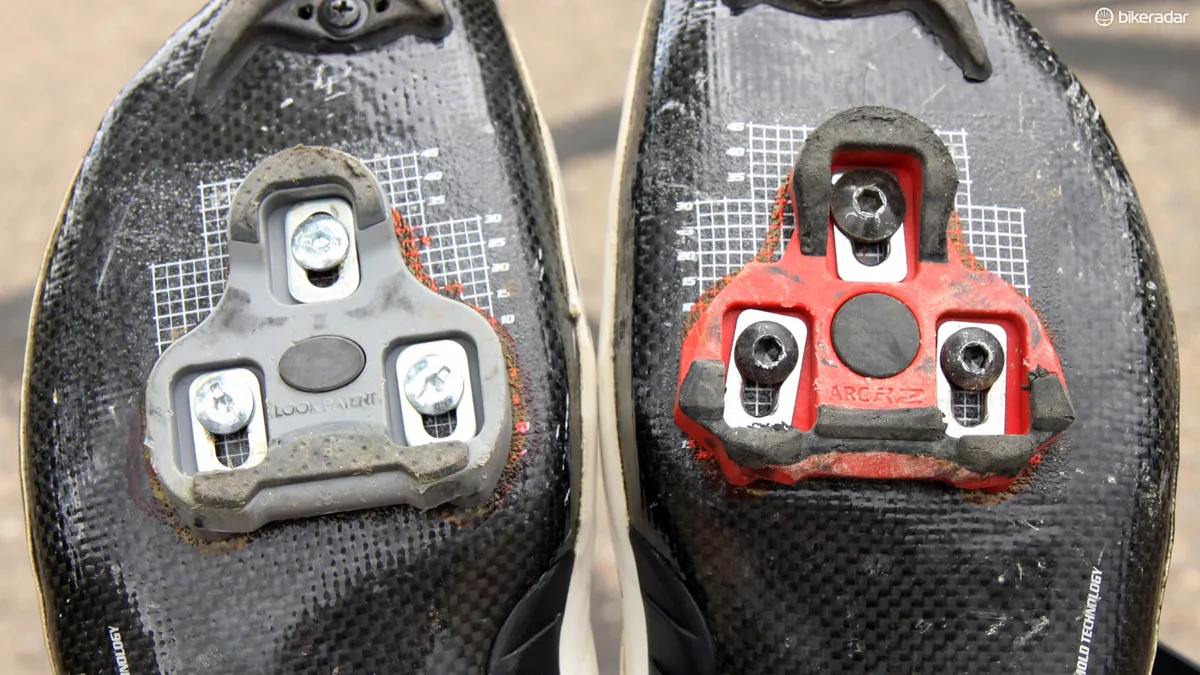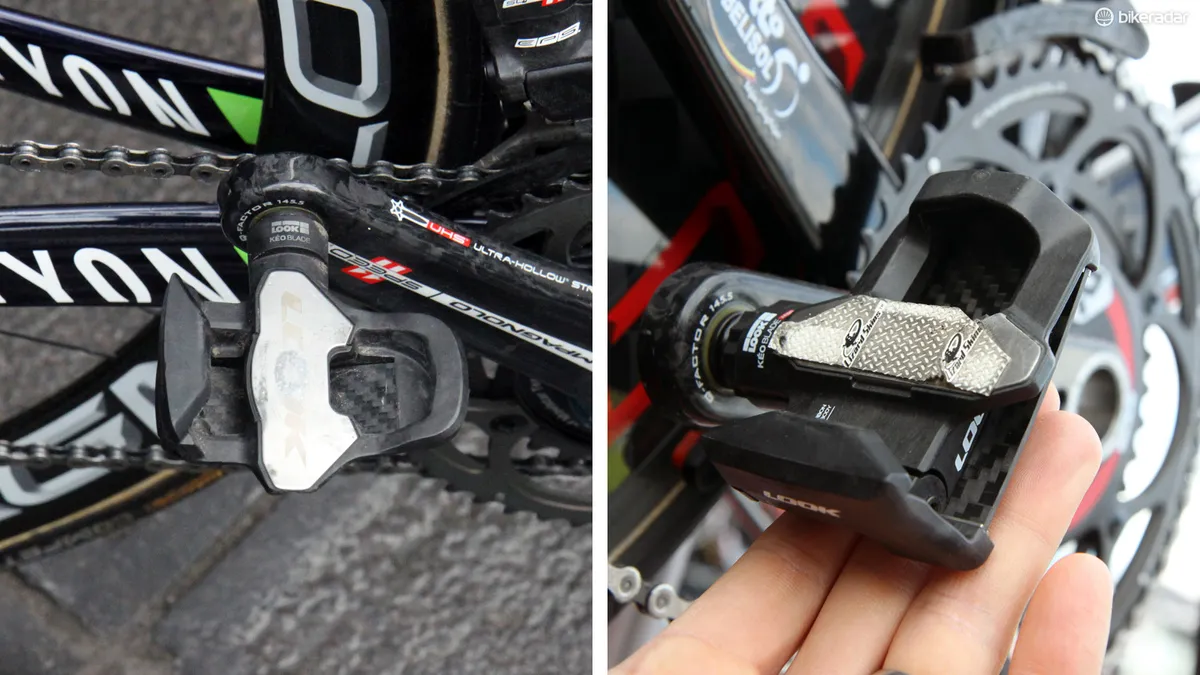Look's new KéO Blade 2 uses the snappy carbon fiber spring of the original KéO Blade combined with a body that's as sleek as the KéO Blade Aéro. Although the new model should theoretically now offer the best of both worlds, it's proven frustrating to use and the cleat interface is still prone to creaking and rocking.
- Highs: Ultralight, sleek form, snappy carbon leaf spring
- Lows: Pedal body isn't properly weighted, non-adjustable release tension, creaky and sloppy cleats
The KéO Blade 2 is tantalizing when you hold it in your hand, and it's better than the original KéO Blade in nearly every way. Moving the carbon 'blade' from the outer edge to the underside of the body not only makes for a far trimmer shape but it protects that critical element from crash damage and significantly improves the cornering clearance, too.
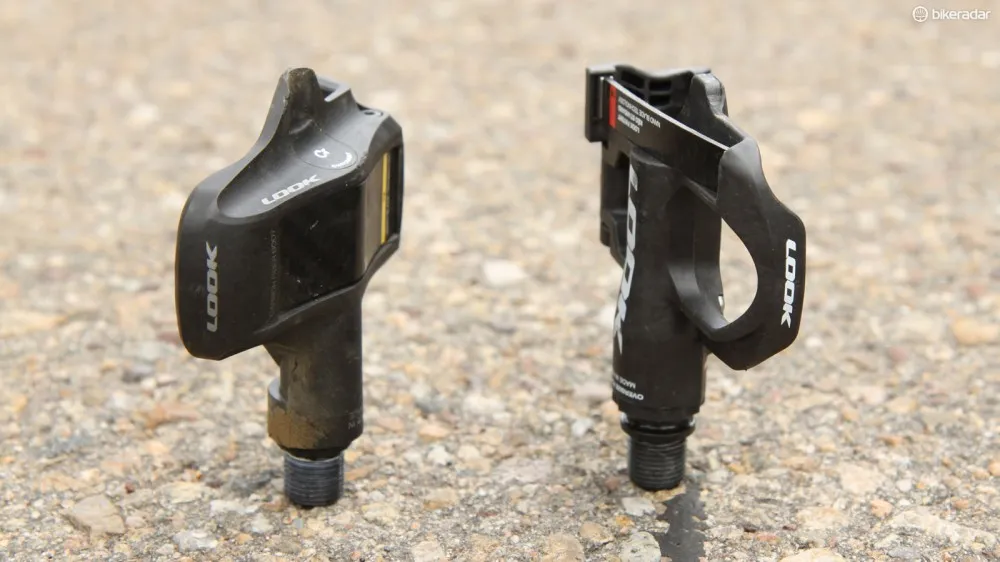
It's easy to see the changes between the new KéO Blade 2 (left) and the original one (right) when viewed side by side
Nevertheless, the stainless steel platform up top manages to grow a few millimeters in width for better support, the pedals are 4g lighter per pair than the original KéO Blade at just 224g a set (without cleats), and the stack height has noticeably decreased – now measuring just 12mm, according to Look.
Out on the road, the same positive KéO Blade attributes apply. The carbon spring lends a uniquely 'snappy' feel when engaging or releasing, the hold is very positive, and the rotational float is free and fluid feeling. As before, the axle threads are also longer than usual to provide some room for extra pedal washers in case your particular biomechanics dictate a greater stance width but you'll have to guess at your preferred release tension as each of the three options are preset at the factory and can't easily be changed.
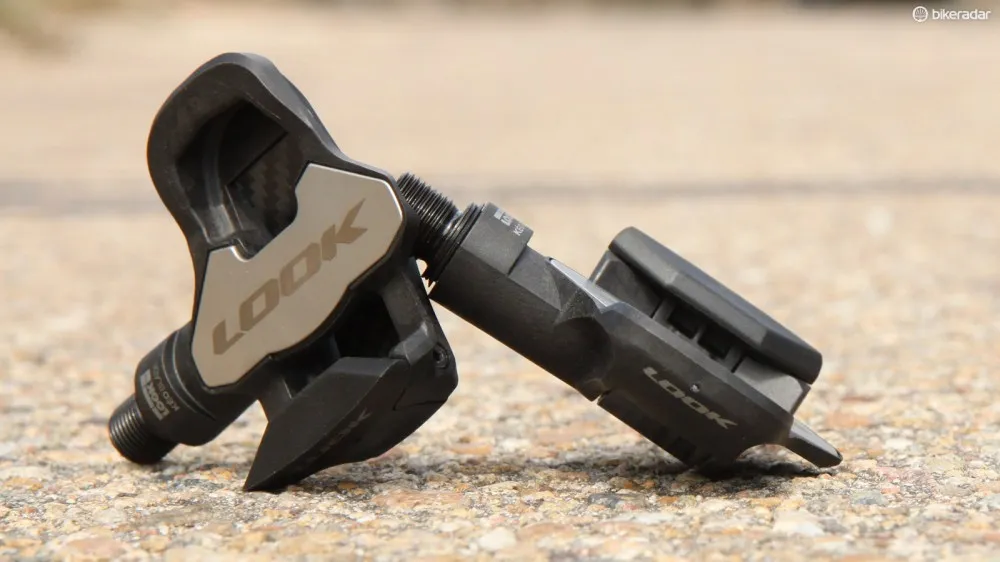
The stainless steel platform is very wide but there's still very impressive cornering clearance
Unfortunately, some of our other complaints about the original KéO Blade still carry over, and in one specific area the new pedal is notably worse.
More than a decade after the original KéO debuted, Look still has yet to address the somewhat sloppy fit between the cleat and pedal body. Despite the wider platform, there's more rocking motion than we would like to see in a top-end pedal like this – or any road pedal, for that matter. That out-of-plane movement also produces the KéO's trademark creaking, which quickly becomes annoying.
Judging by the slight increase in seal drag, Look has seemingly improved the weatherproofing of each triple-bearing axle mechanism, which would normally be a good thing. However, combining that additional drag with the ultralight carbon fiber pedal body means the rear of the pedal refuses to hang down naturally when you're not clipped in. We have experienced the same thing with Time's Xpresso 8 Carbon pedals; clipping in requires looking down and pawing at the pedal as if you are new to clipless pedals.
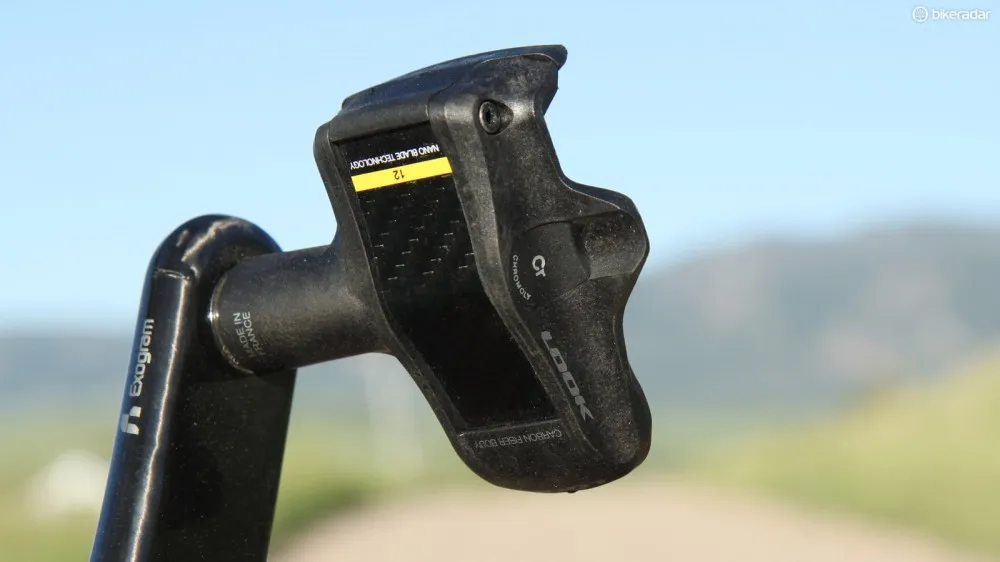
Sadly, we didn't have to resort to any tricks to get our pedals to hold this position
Though this of course wasn't an issue while actually riding, it did make for consistently frustrating restarts at red lights and stop signs (and provided excellent motivation for perfecting our trackstands).
Applying a few drops lightweight oil to the contact seals helped but only slightly – and the problem never went away completely, even after hundreds of miles of riding.
We can't discount these issues as one-offs, either. During recent trips to the Giro d'Italia, Ronde van Vlaanderen and Paris-Roubaix, we lost count of the number of Look KéO Blade 2 pedals that were awkwardly rotated on the spindle. Several Lotto-Belisol riders even resorted to applying strips of handlebar tape to the platform in an apparent effort to improve the cleat fit.
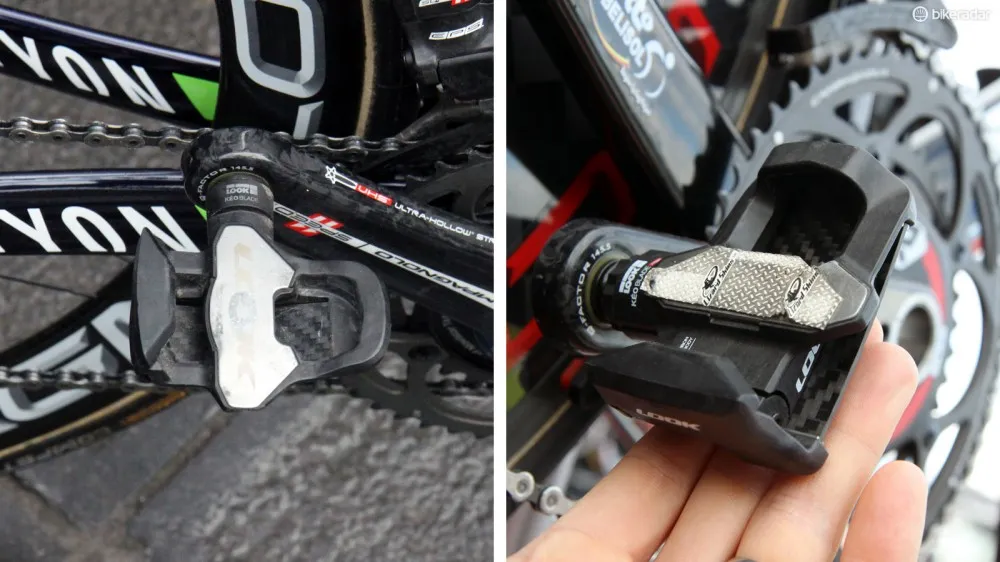
We're not the only ones to experience issues with Look's KéO Blade 2 pedals. Movistar's pedals (left) were awkwardly positioned as well while some Lotto-Belisol riders (right) resorted to strips of handlebar tape to improve the fit on their original KéO Blade models
We ultimately switched to Exustar's Look KéO-compatible cleats and were much happier with the fit. Engagement and release felt the same as before but both the excess movement and the creaking were happily eliminated.
That cleat swap obviously didn't do anything for the pedal weighting, though, and while the KéO Blade 2 CRs might eventually break in and hang like they should, we're simply not willing to wait that long.
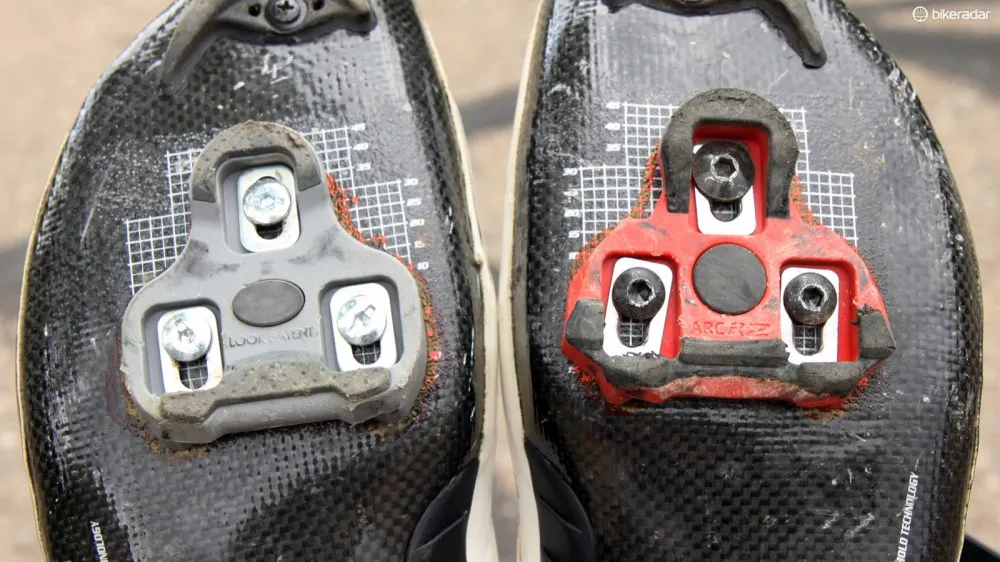
Switching to Exustar's KéO-compatible cleats (right) helped tremendously with the rocking and creaking

